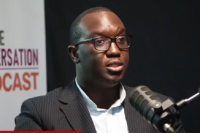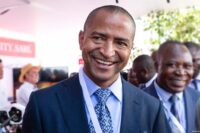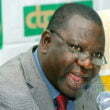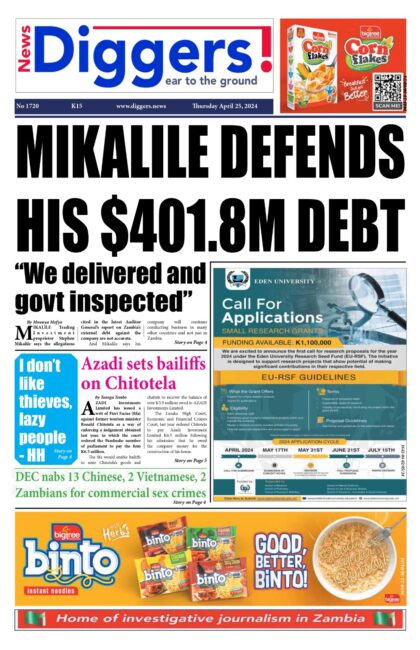Zambia’s reduced Foreign Direct Investment (FDI) by nearly 50 per cent in 2018 shows that corruption and the political environment have played a crucial role in influencing the quality of investment that has been attracted, says economist Professor Oliver Saasa.
Commenting on the 2019 Survey on Foreign Direct Investment and Investor Perceptions announced by the Bank of Zambia (BoZ), Prof Saasa observed that the perceived levels of corruption had played a role in the quality of investors flowing into the country.
“So, a bad system can attract a certain type of investors and people should not think that, actually, because the political system is bad, then there won’t be investors coming, but that’s not what Zambia should look for because, you see, government and the Zambian people, ideally, would want to have clean, decent, large investors and, therefore, we do not want somebody who comes here to commit crimes and externalize resources that they make, illegal, illicit transfers, no, we don’t want those. So, what it means is that, your politics must be clean. If you have to invite the ones that the whole world is looking for, the quality type, the environment must be rich. The quality type is the one that has big money, they follow the rules; the rules must be clear and they must be monitored, and that they pay their dues in terms of contribution to the national Treasury through taxes, that’s what we should look for,” Prof Saasa said in an interview.
“The political environment that you create, either in reality or by perception, would actually determine whether or not a serious investor will come. Let me say that there are certain investors that thrive on countries that are corrupt because it’s easier for them to enter; it’s easier for them to bribe people, whether politicians or those in government to be able to do shoddy things and steal or refuse to bring sufficient resources. They come as investors, but they pick almost all the money on the local market. There is no minimum that you must bring in to some extent that we can monitor and, therefore, there are those that actually thrive on corrupt regimes, this is actually the case.”
He said that the Zambian government’s propensity, since 2011, to appropriate or take possession of private limited companies without following laid-down procedure had an impact on influencing investors’ decisions on whether or not to invest in the country.
“Security of their investment in terms of the rule of law is very important, where they are sure that the security of tenure, the security of their investment, they will not expropriate. If you have a situation where an investor wants to do something, he probably commits a transgression, but the only thing that you think of is like ‘removing the license and send him home, that is not a good investor.’ And this speaks to, for example, the KCM (Konkola Copper Mines) saga. One has to be very careful, it’s not that people are saying, ‘leave those who are transgressing to remain, but there must be procedures where they themselves and those that are looking and watching what you are doing believe that due process is being followed and that nobody, and if at all government just decides ‘we are going to grab because we don’t want you,’ and it won’t be the first time in Zambia, it won’t be the first time in the world. The compensation must be proportionate with how much the government has grabbed on behalf of the people,” Prof Saasa observed.
“If you grabbed and you have not actually compensated, or it has taken years to compensate, LapGreenN, for example, that is the political environment that shows that we have no respect for a foreign investor. So, when you have those and they keep on in terms of examples increasing, then you know that the political environment is not considered to be sufficiently attractive to secure investment of those that want to come into the country from outside. So, when we talk about index, political index in terms of corruption, they are looking at those things, but then, there is another thing that they look for: there must be sufficient infrastructure and security that supports their investments. So, a supportive environment has to respond to these things and then you come to tax.”
And Prof Saasa, who is also Premier Consult managing consultant, questioned government’s complaints and the Zambia Revenue Authority (ZRA) on mining companies’ non-remittance of tax when it was the Authority’s responsibility to ensure that the correct taxes were collected.
“If you look at the impasse with the mining companies, we are mixing a lot of things; firstly, if the mines are not properly declaring how much they have produced, how much they have earned in terms of profit, then the government, ZRA, the government system, Ministry of Finance, you must put a robust system of reporting and monitoring. Now, when you keep on complaining, ‘no, there is transfer pricing, these people are not paying tax,’ so of the people that are complaining, I don’t want to hear from them. I can complain, but they shouldn’t because the responsibility is theirs to make sure that you have a proper reporting system, you monitor what is happening and you should be able to make sure that whatever a foreign investor has declared is correct. And those that don’t declare properly, they must be reprimanded if they have committed the crime against Zambian laws. But if you keep on just shouting, ‘no, these people are stealing!’, that is not helpful, especially if the people who are talking like that are the ones whose responsibility and we are paying them every month, to make sure that it doesn’t happen,” said Prof Saasa.
“The culprits are those whose duty it is to put the right laws, the right monitoring systems and the right prosecution if actually someone transgresses. So, most of the time, actually, we demonize investors.”












